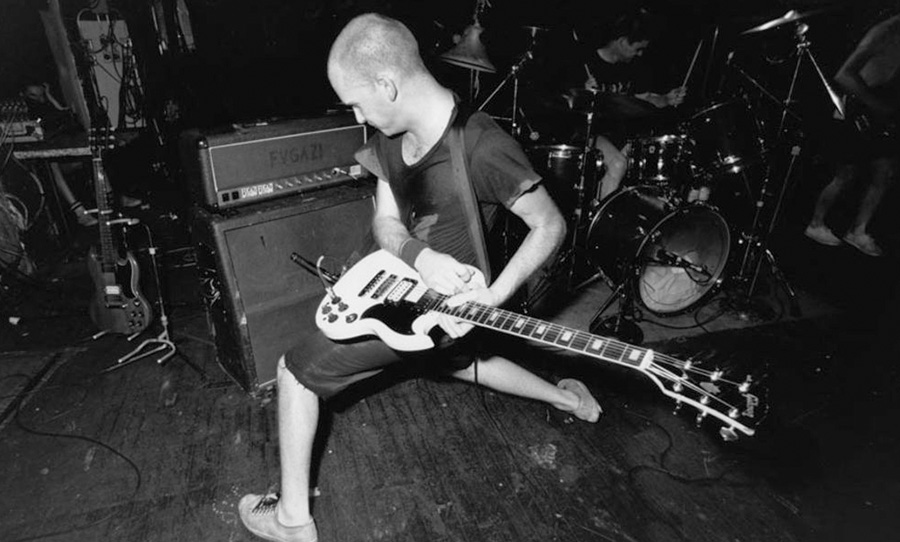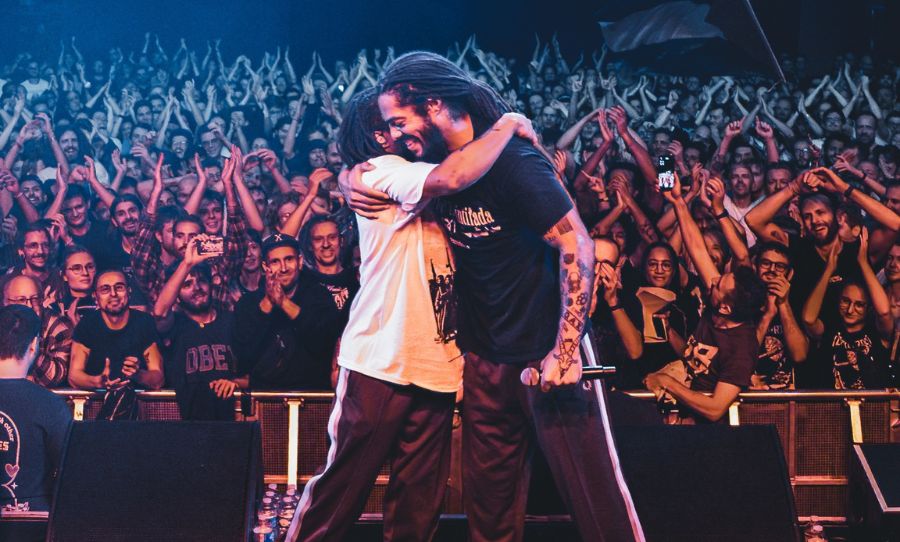For Ian MacKaye, punk is not a medium for expressing nihilism, or simply partying. Instead, it’s always been a forum where bold ideas are exhibited to the world.
For many, the punk rock image is leather-clad, drug-fueled angst, covered in spikes and smelling of booze, achieving rebellion through self-destruction and substance abuse. This would be pretty accurate if you were to look at punk rock groups such as The Sex Pistols or The Ramones. Ian MacKaye led the charge differently, prioritising musical value and sending a message, over the trite trappings of the scene.
As the father of the straight edge punk movement, MacKaye created a musical legacy that cuts like a razor, equipped with nothing more than an attitude of ‘why the fuck not?’. So without further ado, let’s explore the achievements of the man, who brought the good fight to the frontlines of Washington DC.

Rebellious youth
Born April 16, 1962, in Washington DC, Ian MacKaye developed an early love for music thanks to the Woodstock music documentary. After spending nine months living in Palo Alto, California in 1974, MacKaye and his family returned, only to find his friends had become drug-fuelled miscreants.
He refused to follow in the footsteps of his fellow youth and formed a personal ideology of abstinence from self-destructive substances. While initially alone in this rebellion, he soon found another who shared the same attitudes, a boy named Henry Garfield, who is now more commonly known as Henry Rollins. The straight-edge punk movement was born!
While MacKaye never intended to start a movement, the straight-edge punk subculture developed rapidly during the early 80s, as more and more young punks wished to maintain clarity and alertness to in the face of societal issues. While this ideology varies from group to group, the idea of remaining abstinent from alcohol, tobacco and illicit substances is at the core of the movement, with some adding casual sex to the list of vices.
Already heavily passionate about heavy rock, MacKaye formed his first band, The Teen Idles, in 1979, after being inspired by DC and Californian punk bands such as Black Flag. Finding that nobody was interested in releasing their music, MacKaye and fellow bandmate Jeff Nelson formed Dischord Records in 1980, as a method of releasing their own music.
The band worked hard on the production and release of their record, hand pressing 1000 copies and using recycled materials to package them. “That’s the real record industry,” says MacKaye. “We sat together and made records.”
Their debut, Minor Disturbance was released in 1981, unfortunately just after the band’s breakup. Jeff Nelson and MacKaye however remained business partners and quickly formed a new group, named Minor Threat. While the band’s short lifespan ended in 1983 after just one full-length release, Minor Threat are considered to be the pioneer of the ’80s hardcore music scene.
The Robin Hood of punk
After the group went its separate ways, MacKaye concentrated exclusively on running Dischord Records, which was at the time, was volunteer-run out of a share house. “At night, we’d get cardboard from people’s trash to make sleeves,” says Dischord volunteer Amy Pickering. Meanwhile, MacKaye worked three jobs to ensure that his company could keep doing what it did. “It was three years before we withdrew money from the label,” states MacKaye. “We didn’t start paying ourselves until after eight.”
Over the next few years, the musical revolution that MacKaye started rapidly evolved. The emo scene emerged during this and prioritisation of political movements over violence became the norm. It was in 1987 that MacKaye returned to playing music by forming Fugazi, a post-hardcore group that prioritised affordable access to their records and shows. MacKaye believed in the importance of spreading a message with his music and valued this over the groups financial potential.
Fugazi announced an ‘indefinite hiatus’ in 2003, bringing the bands long career to a halt. While they are no longer touring or recording, the members continue to contribute through the Fugazi Live Series archive, which contains recordings of over 800 of the bands live shows, and are publicly available for purchase, at prices set by the individual customer.
Dischord Records is still overseen by MacKaye and has seen the release of over 160 albums from over 60 artists over its life. MacKaye now plays in The Evens, a musical duo with Amy Farina that formed in 2001, which is still active to this day. The Evens focus on bringing music to less traditional spaces such as schools, theatres and libraries.
It’s impossible to measure the legacy of someone like Ian MacKaye. His art, philosophy on freedom, and commitment to the future of music means that his focus is on the future, rather than an idealised notion of the ‘glory days’. The Ian Mackaye story doesn’t end with a ride into the sunset, but you get the feeling that he wouldn’t want it any other way.



